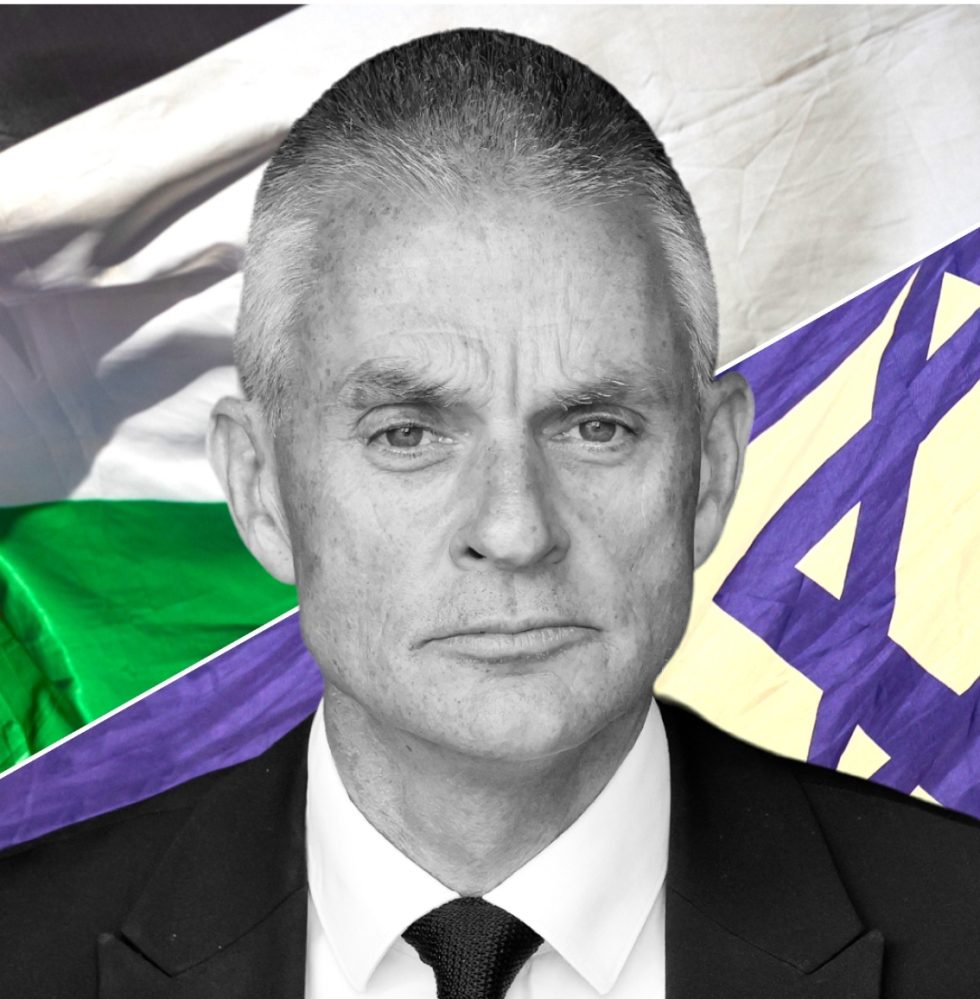
EXCLUSIVE: BBC employees openly revolted about the UK national broadcaster’s Gaza coverage during an all-staff meeting earlier this month, per leaked messages seen by Deadline.
Tim Davie, the BBC’s director general, hosted an “ask me anything” event with employees in June, during which he was grilled about editorial decisions relating to the Israel-Hamas conflict.
Four sources told Deadline that questions and statements about the crisis were among the most “upvoted” by employees, increasing their chances of being put to Davie. BBC News CEO Deborah Turness also took questions during the event.
The messages, some of which accused the BBC’s output of being favorable towards Israel, were leaked amid internal anger about the corporation scrapping the documentary, Gaza: Doctors Under Attack.
The town hall meeting took place before Doctors Under Attack (also known as Medics Under Fire) was officially dropped, but the film was a consistent theme in some questions.
“Why was the decision taken not to broadcast Gaza: Medics Under Fire,” a staffer asked, in one of the most upvoted questions of the event. “The lack of transparency over these decisions is hugely concerning.”
A second person added: “Why are you not allowing the release of Gaza: Medics Under Fire? Are you aware this has negatively impacted the BBC’s reputation and ability to tell Palestine stories?”
Adam Fleming, presenter of the BBC’s Newscast podcast, hosted the town hall. He was praised for acknowledging the questions and putting them to Davie early in the all-staff meeting.
The director general is said to have told staff that the conflict is complicated to cover, pointing to strong feelings from both the Jewish community and those who sympathize with the plight of Palestinians.
One person told Davie that they are reluctant to say that they work for the BBC “for fear of arguments” and are “often confronted about the BBC being a propaganda machine and biased about Gaza.”
In another message, an employee wrote: “I am extremely concerned about the damage being done to the BBC’s reputation in reaction to its coverage of events in Palestine. I understand and appreciate the aims of our editorial guidelines, to continuously strive for balance and impartiality, but I feel we are failing.
“I find myself unable to defend a great deal of the reporting I see and that is an uncomfortable and depressing position to be in while watching a genocide unfold. I know I am not alone in feeling this way and believe my question will resonate with colleagues across the corporation.”
Speaking to Deadline, a seasoned BBC journalist compared the corporation’s approach to Gaza to being in an “abusive relationship” because they feel they are being told “not to believe reality around us.”
Another insider suspects that the BBC ditched Doctors Under Attack because it is keen to avoid another Gaza documentary crisis as conversations about charter renewal ramp up.
The BBC Eye Investigations project was meant to spotlight the plight of medics in Gaza, but production was paused in April following the scandal over Gaza: How to Survive a Warzone, the HOYO Films doc that was found to have been narrated by the child of a Hamas minister.
A BBC investigation into How to Survive a Warzone is expected to be published imminently. Peter Johnston, the BBC’s director of editorial complaints and reviews, is examining the failings that led to the film being broadcast.
The UK’s Jewish community was appalled that the BBC screened a film narrated by a boy with Hamas connections that were not declared to viewers. Others argued that the BBC’s decision to pull How to Survive a Warzone was an act of “censorship” that played into Israel’s agenda.
The BBC announced last week that Doctors Under Attack would not move forward, with rights to the project being released back to Basement Films, the production company run by former Channel 4 News editor Ben de Pear.
In a statement, the BBC said the film risked “creating a perception of partiality.” It did not expand on this, but Deadline understands that bosses were concerned about comments made by filmmakers involved in the project.
De Pear personally criticized Davie last week, saying the director general is “just a PR person,” who has meddled in editorial decisions and is leading an organization that is “failing” in its duty to report on the Gaza crisis properly.
On the same day, Ramita Navai, a journalist involved in Doctors Under Attack, went on Radio 4 and described Israel as “a rogue state that’s committing war crimes and ethnic cleansing, and mass-murdering Palestinians.” She said this was not an opinion, but a professional assessment based on her journalism.
The BBC said: “The BBC has produced powerful coverage of this conflict. Alongside breaking news and ongoing analysis, we have produced award-winning documentaries such as Life and Death in Gaza, and Gaza 101.
“We have also investigated allegations of abuse of Palestinian prisoners and Israel’s attacks on Gaza’s hospitals. Just today [June 20] we are running a powerful piece of longform journalism that captures the final two weeks inside a Gaza hospital before it was forced to close.”




